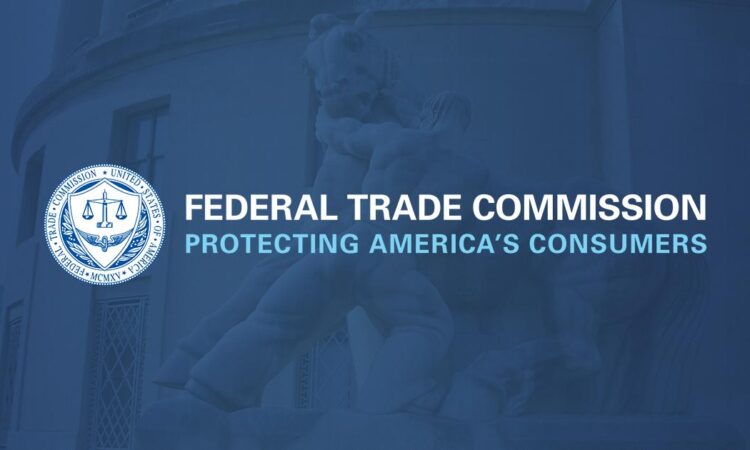FTC Reaches Settlement with Crypto Platform Celsius Network; Charges Former Executives with Duping Consumers into Transferring Cryptocurrency into their Platform and then Squandering Billions in User Deposits

The Federal Trade Commission announced a settlement with bankrupt cryptocurrency platform Celsius Network that will permanently ban it from handling consumers’ assets and charged three former executives with tricking consumers into transferring cryptocurrency onto the platform by falsely promising that deposits would be safe and always available.
“Celsius touted a new business model but engaged in an old-fashioned swindle,” said Samuel Levine, Director of the FTC’s Bureau of Consumer Protection. “Today’s action banning Celsius from handling people’s money and holding its executives accountable should make clear that emerging technologies are not above the law.”
The proposed settlement with Celsius and its affiliates will permanently ban the companies from offering, marketing, or promoting any product or service that could be used to deposit, exchange, invest, or withdraw any assets. The companies also agreed to a judgment of $4.7 billion, which will be suspended to permit Celsius to return its remaining assets to consumers in bankruptcy proceedings. The former executives—ex-CEO and co-founder Alexander Mashinsky along with Celsius’s other co-founders Shlomi Daniel Leon and Hanoch “Nuke” Goldstein—have not agreed to a settlement and the FTC’s case against them will proceed in federal court.
New Jersey-based Celsius—which filed for bankruptcy in July 2022—marketed a variety of cryptocurrency products and services to consumers, including interest-bearing accounts, personal loans secured by their cryptocurrency deposits, and a cryptocurrency exchange. According to a complaint filed by the FTC in federal court, Mashinsky, Leon and Goldstein marketed the platform as a safe place for consumers to deposit their cryptocurrency, claiming in online videos and other forums that its platform was safer than banks because “we have less risk, we have much less risk.”
The FTC says the company and its top executives deceived users by falsely promising them that they could withdraw their deposits at any time, that the company maintained a $750 million insurance policy for deposits, that it had sufficient reserves to meet customer obligations, and that those in its Earn program could earn rewards on deposits of cryptocurrency assets as high as 18 percent annual percentage yield (APY). They also repeatedly claimed that the company did not make any unsecured loans.
Many consumers reported that these promises were important factors in their decision to deposit cryptocurrency with Celsius. In opening accounts with Celsius, consumers were required to provide access to sensitive information including their bank account and other financial information.
Far from securing customers’ cryptocurrency deposits, Celsius took title to and misappropriated these deposits totaling more than $4 billion, according to the complaint. The company used consumer deposits to fund its operations, pay rewards to other customers, borrow from other institutions, and make high-risk investments, which even the company acknowledged often lost money.
And contrary to its executives’ promises, Celsius routinely made unsecured loans, totaling $1.2 billion as of April 2022, the FTC says. At the same, the complaint charges that Celsius only had a small capital reserve that would have allowed a fraction of its customers to withdraw their cryptocurrency within one week. And, Celsius did not hold a $750 million insurance policy for deposits. The company also lacked, until mid-2021, any system to track its assets and liabilities, according to the complaint.
The FTC says that Celsius and its top executives also failed to deliver the returns they promised on consumers’ cryptocurrency. The company only provided the highest returns to those who enrolled in its loyalty program and invested in a handful of lesser-known cryptocurrencies, and gave most participants far less than promised.
Even as its fiscal health declined, the company’s top executives concealed this information from the public, telling consumers that customers’ deposits were safe and soliciting new customers just days before it froze customer accounts and filed for bankruptcy, according to the FTC. In May 2022, Mashinsky falsely claimed in an online video that “Celsius is stronger than ever, we have billions of dollars in liquidity.” And just a few days before freezing consumer withdrawals, Celsius falsely promised that it had “more than enough” assets to satisfy its consumer obligations.
While lying to their customers to keep them from withdrawing their cryptocurrency deposits, Leon, Goldstein, and Mashinsky protected themselves by withdrawing significant sums of cryptocurrency from Celsius two months before the company filed for bankruptcy. Consumers subsequently lost access to their life savings, college funds, and money saved for retirement.
In addition to banning Celsius and its affiliated companies from handling consumers’ assets, the proposed settlement prohibits the companies from misrepresenting the benefits of any product or service; from making false, fictitious, or fraudulent representations to any customer of a financial institution in order to obtain or attempt to obtain their financial information; and from disclosing nonpublic personal information about consumers without their express consent.
The Commission voted 3-0 to authorize staff to file a complaint against the Celsius enterprise, Leon, Goldstein, and Mashinsky and to approve a stipulated order with Celsius and its affiliated companies. The complaint was filed in the U.S. District Court for the Southern District of New York.
NOTE: The Commission authorizes the filing of a complaint when it has “reason to believe” that the named defendant is violating or is about to violate the law and it appears to the Commission that a proceeding is in the public interest. Stipulated orders have the force of law when approved and signed by the District Court judge.
The lead staff attorneys on this matter are Katherine Aizpuru, Katherine Worthman, and Stephanie Liebner from the FTC’s Bureau of Consumer Protection.






